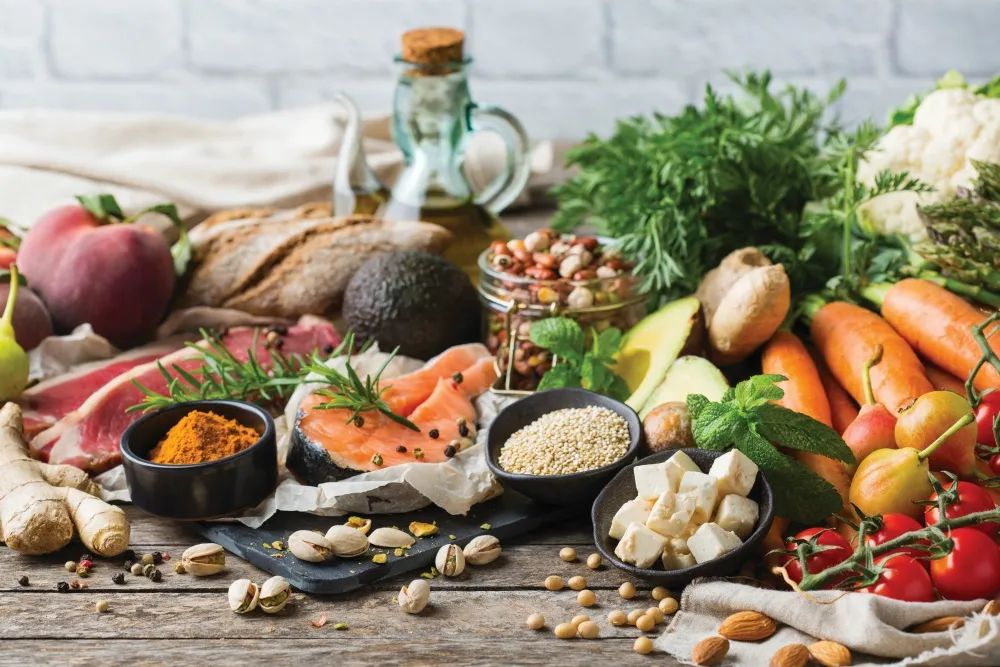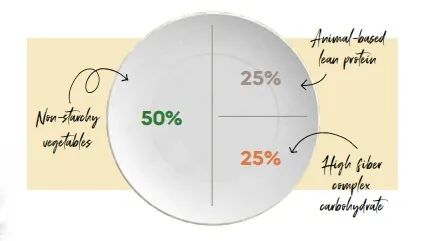
To Stave Off Cold and Flu, Eat the Alphabet
November 2021
by stephanie hobby
Your hard-working immune system is an absolute marvel of elegant complexity, with layer upon layer working together to keep you healthy.
Two basic systems work in tandem to achieve this. Your innate immune system is the first line of defense that physically blocks germs. This includes things like your skin, mucus that catches anything trying to get in, and potent stomach acid that takes out pathogens we might eat.
The second component is your adaptive immune system, which constantly learns to recognize new invaders and trigger responses tailored to the foreign body. We’ve heard a lot about antibodies this year; your adaptive immune system is to thank for developing these gems. It's easy to think of them as a lock and key; your antibodies know what a specific invader's surface looks like, so they latch on and immediately get to work destroying it. This mechanism is why you don't get diseases like chickenpox twice; if it tries to attack the body again, your antibodies glom onto the virus and destroy it before it can get a foothold.
And while your immune system is always there, humming away in the background, fighting daily battles you know nothing about, sometimes those defenses get breached, and you experience this by getting sick. So like anything, your lines of defense need some basic maintenance.
Physicians will tell you to get enough rest, exercise, address stress, quit smoking, maintain a healthy weight, limit alcohol, and stay up to date with vaccines. Of course, another big part is to eat right. But what does that mean?
You are what you eat, or so the saying goes. Plenty of evidence suggests that good nutrition is a key player in reducing the risk of a gamut of infections by protecting healthy cells, supporting the growth and activity of immune cells, and producing antibodies.
While you can find immune-boosting supplements at the drug store, it's much better to start with your grocery cart. Billings Clinic Registered Dietician McKenzie Johnson recommends the healthy plate method:
This ratio can help ensure you get the right blend of vitamins, which are organic chemical compounds and minerals. Vitamins and minerals facilitate or regulate important chemical processes in your cells. If you don't get enough of them, cells can't function optimally, and disease can set in.
Vitamin A does not get a lot of attention, but it should. Responsible for keeping those barriers of skin and tissues in the mouth and intestines healthy, vitamin A also helps your respiratory system and plays a role in producing the powerhouse of the immune system, the white blood cell.
- Dark, bright orange produce- sweet potatoes, carrots, pumpkin, broccoli, and other dark leafy green vegetables, red bell peppers, and apricots are excellent sources of Vitamin A, and many cereals and milk are fortified with it.
The B vitamins, particularly B6 and B12, support energy levels, brain function, and cell metabolism. They also promote cell health and prevent infections and are primarily found in animal products.
- Lean meats like poultry, fish, and other seafood, grass-fed beef. Folate can also be found in dark leafy green vegetables, beans, and lentils.
Vitamin C has long been front and center, and for good reason. It stimulates the formation of antibodies and helps develop white blood cells. A great source of antioxidants, which fight free radicals and help reduce inflammation contributing to many acute and chronic conditions.
- Citrus fruits, bell peppers, papaya, strawberries, tomatoes, and kale. Herbs like pepper and oregano.
Vitamin D3 has made headlines recently for its critical role in reducing inflammation and risk of viral infections. “It’s one of those nutrients that’s associated with reducing your risk for a lot of chronic conditions,” Johnson said. It’s really hard to get enough vitamin D from food.
- Fortified cereals or juice, orange juice or milk. Fatty fish like salmon or tuna. Sunlight is the best source.
Experts advise getting at least 15 minutes of sun exposure during the day, but that can be hard, particularly for Montanans. Johnson recommends getting your blood checked and talking with your healthcare provider about vitamin D3 supplements. Since children need a different dosage than adults, speak with your pediatrician and invest in high-quality multivitamins.
Vitamin E is another excellent antioxidant that doesn't get as much attention but plays a significant role in immune function by protecting the membranes of immune cells and regulating cell division.
- Different nuts and seeds like sunflower seeds or almonds. Vegetable oils, some peanut butter, and fortified cereals.
Finally, the mineral zinc helps facilitate white blood cell production. Finding the balance can be tricky, Johnson said. Too much can contribute to a copper deficiency that negatively impacts your immune system. She advocates getting a lab test and seeking food sources for zinc.
- Meats, whole grains, milk, nuts, seeds and lentils, as opposed to supplements.
Iron also contributes to a healthy immune system.
- Found in animal protein and also present in beans, seeds, and lentils.
Amino acids from proteins help your immune system and help develop a healthy gastrointestinal system and mucosal lining of your gut.
Many researchers believe gut health greatly impacts how your body breaks down food and absorbs nutrients. If they’re not functioning well, your cells can’t get the chemicals they need. “I've seen estimates of anywhere from 70 to 80 percent of our immune function coming from our gut,” Johnson said. “It's important to make sure we're optimizing that.” Probiotics and prebiotics are thought to help.
- Probiotics- yogurt, fermented soy products, sauerkraut, and kimchi.
- Prebiotics- fiber from fruits and vegetables, nuts and seeds such as Chia seeds.
So as we head into cold and flu season, keep those hands washed, get some sleep, and check your pantry and medicine cupboard. Johnson said that while supplements can play a role, it’s not a well-regulated industry, so look for third-party approval seals.
A balanced diet is always a great idea, but it’s important to talk with your physician before embarking on any drastic changes. In the meantime, a good cup of tea and some chicken noodle soup never hurt anyone!
Originally printed in the November 2021 issue of Simply Local Magazine
Never miss an issue, check out SLM's digital editions here!






